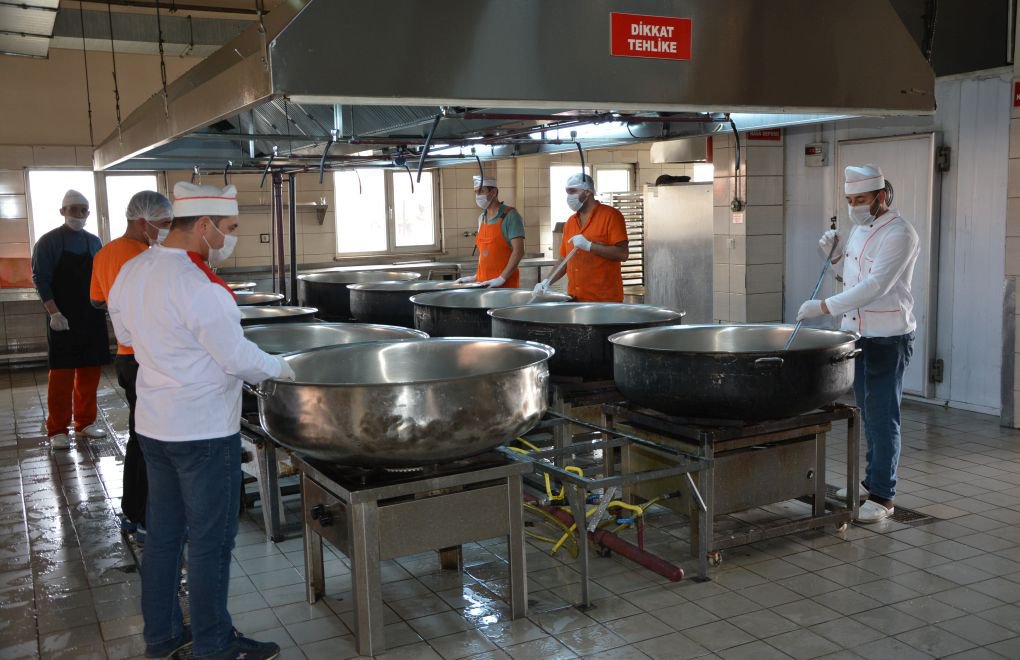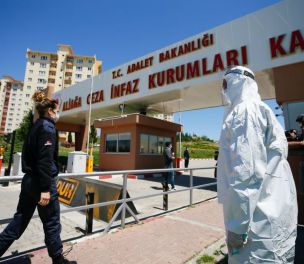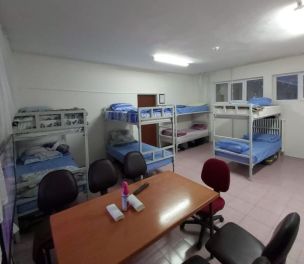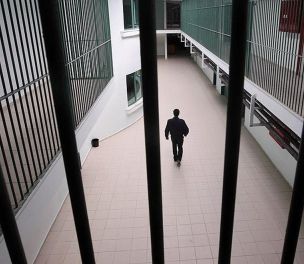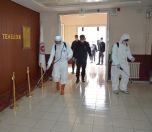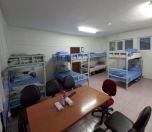Click to read the article in Turkish
The Turkish Medical Association (TTB) has urged the government to release all prisoners who are in the risk group of Covid-19, especially ill prisoners.
Because of the coronavirus pandemic, many countries releases prisoner without discrimination as the UN High Commissioner for Human Rights called on the governments to reduce prison populations, the TTB Central Committee said in a written statement.
A sentence reduction bill has also been introduced to the parliament in Turkey, though it excludes "terrorism-related" crimes, for which many journalists and politicians are behind bars. Accepted in the justice committee of the parliament, the proposal will be discussed in the general assembly today (April 7).
CLICK - Sentence Reduction Bill Submitted to Parliament
The proposal also includes some amendments regarding ill prisoners, but how it will be implemented is uncertain.
"According to the Justice Ministry data, there are 294 thousand prisoners in 255 prisons in Turkey," the statement says, noting that some of the prisoners' sentences have not become final.
"In addition, there are around 140 thousand doctors, dentists, psychologists, sociologists, social workers, health officers, wardens and gendarmerie officers working under difficult conditions.
CLICK - Lawyers: Sentence Reduction Bill is Against the Principle of Equality Before the Law
"In this context, about 440 thousand people are very likely to be affected and transmit Covid-19 compared to other individuals and groups in the society."
Prisons are suitable places for the spread of an epidemic as they are closed places with insufficient ventilation and with poor hygiene conditions, according to the TTB. density and circulation of people and the fact that prison staff are in constant contact with outside also make prisons favorable places for an epidemic, the statement notes.
CLICK - Human Rights Association: 1,564 Ill Prisoners in Turkey, 591 in Serious Condition
"The main approach that is advises against the epidemic is to reduce the transmission of the virus from sick people to healthy people by minimizing the contact between people. The most effective way to prevent the disease are the applications of quarantine, isolation and physical distance. Given prison conditions and practices, arrestees and convicts cannot maintain the necessary physical distance.
"After a possible contamination, it will be inevitable that all prisoners and arrestees will be infected and widespread deaths will occur, considering the difficulties in accessing health services in prison conditions.
CLICK - Letter from Prison: 'If Virus Enters the Ward, We will Get Infected in an Hour or So'
"We know that convicts and arrestees in prisons have difficulties in accessing healthcare services in ordinary times as well. It is known that prisoners' immune systems are extremely weak due to reasons such as inadequate and imbalanced nutrition, difficulty in accessing basic needs such as soap and detergent, hygiene materials and meeting these needs with money. Therefore, the risk for them of being affected by the outbreak and getting sick are high."
The statement says that those in the risk group, namely those older than 60 years of age, who have chronic diseases, who use drugs that weaken the immune system, who are pregnant or who have children with them should be released.
"Access to healthcare services and the right to life are also the most basic rights for prisoners. A person who is in prison cannot be deprived of the right to life and right to access to healthcare, whatever the reason for his or her imprisonment is." (AS/VK)




